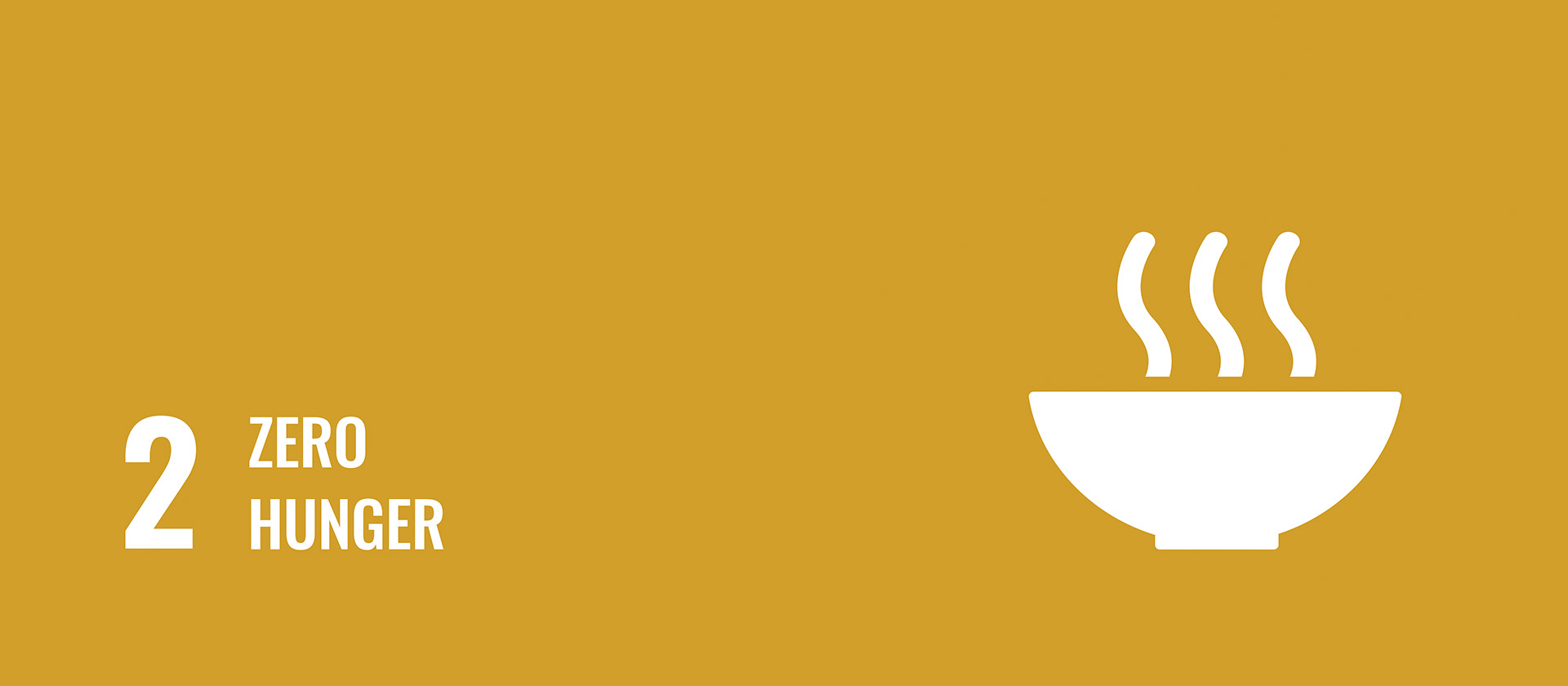The devastating impacts of climate change, civil wars, economic failures and the pandemic are some of the reasons why, according to the World Food Programme, 135 million people experience acute hunger. The COVID-19 pandemic could compound this figure by an additional 130 million people, facing hunger.
With more than a quarter of a billion people on the verge of starvation, it is essential that food and humanitarian relief is supplied to those in most need. At the same time, sustainable food production and increasing agricultural output will help to mitigate the global food shortages for 690 million starving and most disadvantaged people on the planet.
It is thought that as many as two billion people could be hungry by 2050 but, with an altruistic approach, food security could be achieved for all our citizens.
Learn more about Goal 2: Zero hunger.
Teaching and learning
Through teaching and learning, University of Liverpool students are able to explore the causes of hunger and possible solutions from a number of different perspectives within their course modules. Examples of course modules that have a direct or indirect focus on hunger (as assessed by students) include:
- Living with environmental change (ENVS119)
- Embodied and everyday geographies (ENVS344)
- Law and global health (LAW522)
We recognise that there is much more to do to equip students with the knowledge and skills they need to make a contribution to achieving the global goal of eliminating hunger. Working with the Guild of Students our students have the opportunity to audit their curriculum modules for their relevance to Goal 2: Zero hunger and make recommendations to the course content.
For more information on how students can get involved see the Guild curriculum audit report.
The University has established a Responsible Consumption and Production Working Group. This group brings together academics, students and representatives from our Centre for Innovation in Education, to develop a strategic plan for embedding SDGs into the curriculum.
There are also a number of ways that students can support the aims and objectives of SDG2 through extra-curricular activities, including volunteering opportunities.
Research and knowledge exchange
The University contributes to identifying the root problems that cause hunger and potential solutions across many areas of research. Some key examples are:
Leadership, governance and professional services
Examples of leadership, governance and professional services include:
- Fairtrade policy
The University and the Liverpool Guild of Students, through a commitment to providing Fairtrade products at its outlets and events, have achieved Fairtrade University status. Our Fairtrade Steering Group implements and monitors the Fairtrade policy and works toward renewing our Fairtrade University status each year.
Our catering team, Hospitality Liverpool ensures local, organic, ethically-sourced and high-quality food is provided throughout campus coffee bars, vending machines, and event catering.
Residential, Sport & Commercial Services have also developed a healthy and sustainable food policy that outlines their commitment to:
- Seasonal menus
- Ethically certified products, eg Organic
- Ethically traded items, i.e. Fairtrade
- Reducing food miles
- Develop a policy for using University farmed fruit and vegetables
- Promote non-meat dishes as part of a balanced, climate-friendly diet.
Back to: Sustainability
